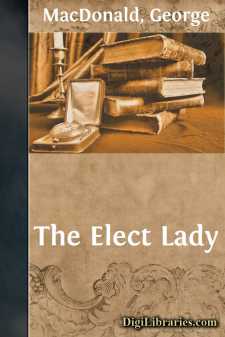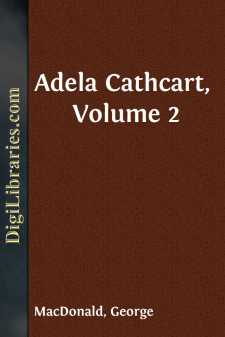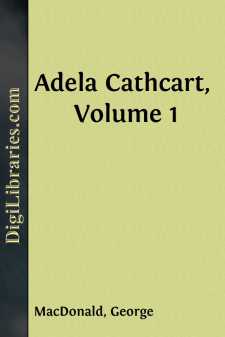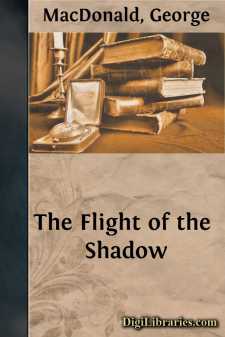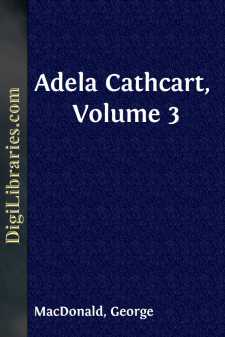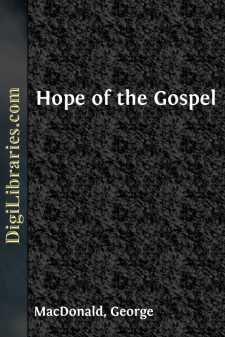Categories
- Antiques & Collectibles 13
- Architecture 36
- Art 48
- Bibles 22
- Biography & Autobiography 813
- Body, Mind & Spirit 142
- Business & Economics 28
- Children's Books 15
- Children's Fiction 12
- Computers 4
- Cooking 94
- Crafts & Hobbies 4
- Drama 346
- Education 46
- Family & Relationships 57
- Fiction 11828
- Games 19
- Gardening 17
- Health & Fitness 34
- History 1377
- House & Home 1
- Humor 147
- Juvenile Fiction 1873
- Juvenile Nonfiction 202
- Language Arts & Disciplines 88
- Law 16
- Literary Collections 686
- Literary Criticism 179
- Mathematics 13
- Medical 41
- Music 40
- Nature 179
- Non-Classifiable 1768
- Performing Arts 7
- Periodicals 1453
- Philosophy 64
- Photography 2
- Poetry 896
- Political Science 203
- Psychology 42
- Reference 154
- Religion 513
- Science 126
- Self-Help 84
- Social Science 81
- Sports & Recreation 34
- Study Aids 3
- Technology & Engineering 59
- Transportation 23
- Travel 463
- True Crime 29
There & Back
by: George MacDonald
Description:
Excerpt
CHAPTER I.
FATHER, CHILD, AND NURSE.
It would be but stirring a muddy pool to inquire—not what motives induced, but what forces compelled sir Wilton Lestrange to marry a woman nobody knew. It is enough to say that these forces were mainly ignoble, as manifested by their intermittent character and final cessation. The mésalliance occasioned not a little surprise, and quite as much annoyance, among the county families,—failing, however, to remind any that certain of their own grandmothers had been no better known to the small world than lady Lestrange. It caused yet more surprise, though less annoyance, in the clubs to which sir Wilton had hitherto been indebted for help to forget his duties: they set him down as a greater idiot than his friends had hitherto imagined him. For had he not been dragged to the altar by a woman whose manners and breeding were hardly on the level of a villa in St. John's Wood? Did any one know whence she sprang, or even the name which sir Wilton had displaced with his own? But sir Wilton himself was not proud of his lady; and if the thing had been any business of theirs, it would have made no difference to him; he would none the less have let them pine in their ignorance. Did not his mother, a lady less dignified than eccentric, out of pure curiosity beg enlightenment concerning her origin, and receive for answer from the high-minded baronet, "Madam, the woman is my wife!"—after which the prudent dowager asked no more questions, but treated her daughter-in-law with neither better nor worse than civility. Sir Wilton, in fact, soon came to owe his wife a grudge that he had married her, and none the less that at the time he felt himself of a generosity more than human in bestowing upon her his name. Creation itself, had he ever thought of it, would have seemed to him a small thing beside such a gift!
That Robina Armour, after experience of his first advances, should have at last consented to marry sir Wilton Lestrange, was in no sense in her favour, although after a fashion she was in love with him—in love, that is, with the gentleman of her own imagining whom she saw in the baronet; while the baronet, on his part, was what he called in love with what he called the woman. As he was overcome by her beauty, so was she by his rank—an idol at whose clay feet is cast many a spiritual birthright—and as mean a deity as any of man's device. But the blacksmith's daughter was in many respects, notwithstanding, a woman of good sense, with much real refinement, and a genuine regard for rectitude. Although sir Wilton had never loved her with what was best in him, it was not in spite of what was best in him that he fell in love with her. Had his better nature been awake, it would have justified the bond, and been strengthened by it.
Lady Lestrange's father was a good blacksmith, occasionally drunk in his youth, but persistently sober now in his middle age; a long-headed fellow, with reach and quality in the prudence which had long ceased to appear to him the highest of virtues....




